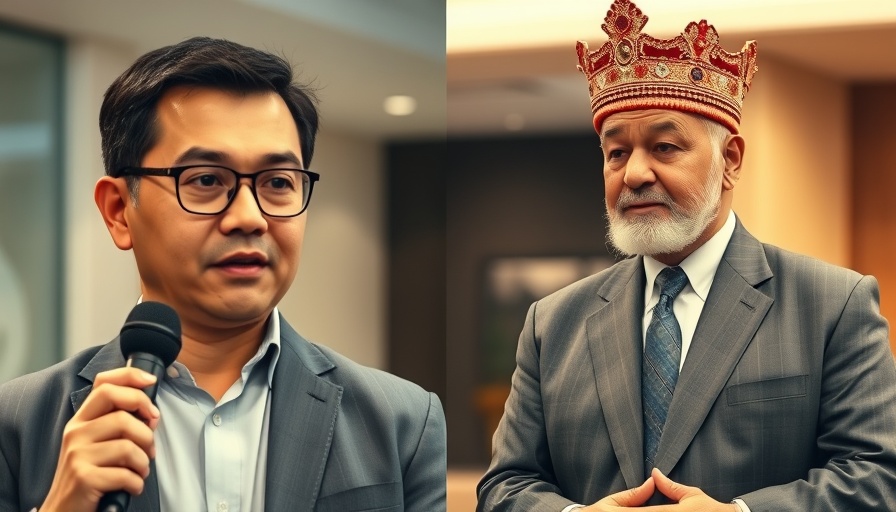
Peter Obi's Bold Criticism: A Call for Accountability
As Nigeria celebrates Democracy Day, former presidential candidate Peter Obi has come forth with a biting critique of President Bola Ahmed Tinubu's administration. With soaring inflation and rising poverty levels, Obi's testimony reflects a wider discontent among Nigerians who feel increasingly alienated from their governance. In a nation where the struggles for democracy were long and arduous, it is disappointing to witness a regression in the principles that were so dearly fought for.
In 'Peter Obi Criticises Tinubu's Administration - 6 PM News 12th June 2025,' the discussion dives into the current state of Nigeria's democracy, exploring key insights that sparked deeper analysis on our end.
Economic Reforms or Empty Promises?
While President Tinubu boasted about the nation's GDP growth and improved foreign exchange stability, many ordinary Nigerians feel no tangible benefits from these supposed victories. Obi's statements resonate with the public sentiment: the impact of reforms appears distant and ineffective. With inflation tightening its grip on essential commodities, claims of economic recovery ring hollow for the average citizen who struggles to afford basic needs. Obi reminds us that while the government celebrates its policies, millions are left to grapple with the harsh realities of day-to-day life amidst worsening socioeconomic conditions.
Protests: A Symbol of Civil Discontent
The June 12 democracy protests echoed this sentiment. Citizens took to the streets, expressing frustration over the government’s inability to address their plight adequately. The scene painted a vivid picture of two factions: one celebrating democracy, while the other voiced stark discontent against the ruling administration’s directions. This duality suggests a society at a crossroads, yearning for accountability and a legitimate voice in governance.
Obi vs. Tinubu: A Battle of Narratives
Amid claims of failing democracy, Obi argues that Tinubu's administration has resorted to 'gaslighting' the public rather than addressing pertinent issues head-on. By manipulating narratives and shifting blame, the administration appears to evade genuine responsibility for the decline in security and democratic principles. Obi's critique prompts a necessary examination of governmental transparency and accountability. Are politicians merely managing perceptions, or are they genuinely working for the citizenry?
The Eroded Democratic Principles: A Historical Perspective
To understand the depth of this discontent, we must revisit Nigeria's democratic history. The struggles faced by pro-democracy activists in the 1990s under military rule were not just about political power; they were about ensuring a government that serves its people. Now, as citizens grapple with a government that many feel is veering dangerously close to authoritarianism, there is a collective sorrow about the fate of democracy in Nigeria. Obi’s insights shine a light on unfavorable comparisons between past struggles for freedom and the current status quo.
Looking Ahead: What Needs to Change?
As calls for reform grow louder, the discourse surrounding Nigeria's future is critical. Obi suggests that policy implementation must prioritize the citizenry's needs rather than political gains. If the government truly aims to alleviate poverty and ensure equality, a shift toward policies that promote social infrastructure and economic equity is essential. This would require not only reform but also a commitment to addressing the fears of those who took to the streets.
Conclusion: An Invitation for Collective Engagement
Obi's critiques serve as a necessary reminder for Nigerians to engage critically with their leaders—they represent the people's mandate, after all. As the nation reflects on Democracy Day, it is imperative for citizens to demand accountability and progress from their administration. Only through active participation can democracy thrive in Nigeria. Let's not forget that change begins with us; it is incumbent upon each citizen to ensure that their voices are heard and that they hold their leaders accountable.
 Add Row
Add Row  Add
Add 


 Add Row
Add Row  Add
Add 

Write A Comment